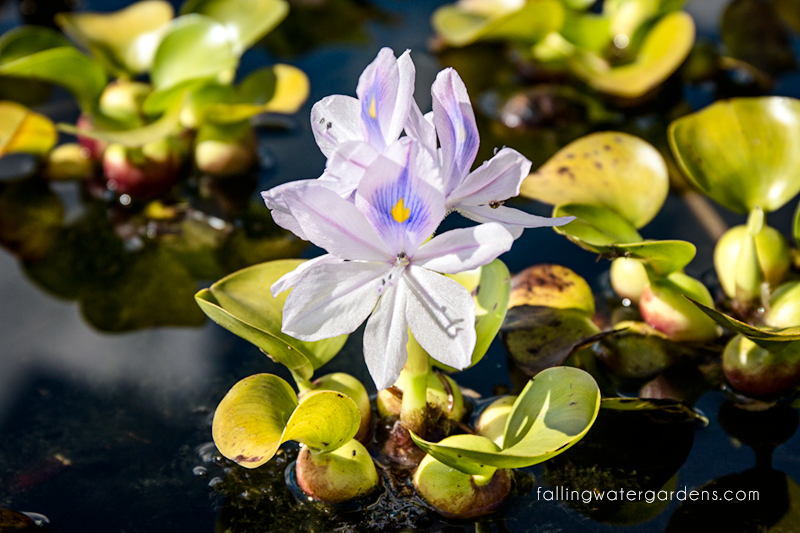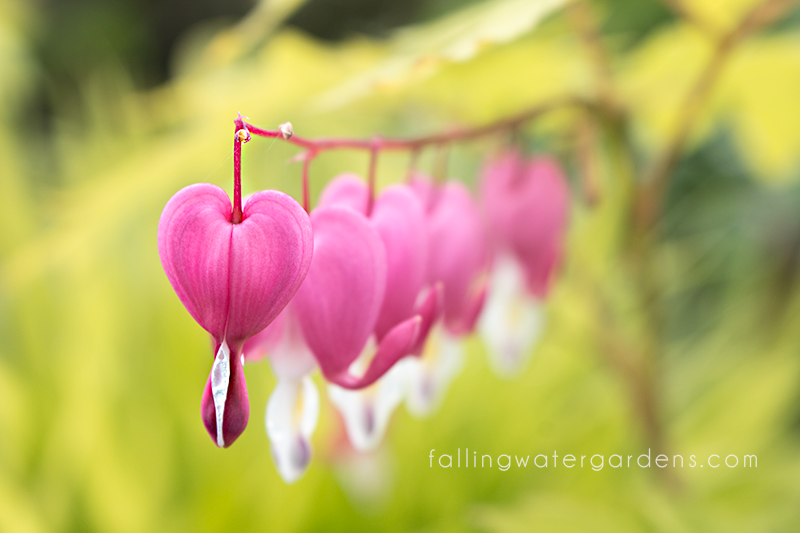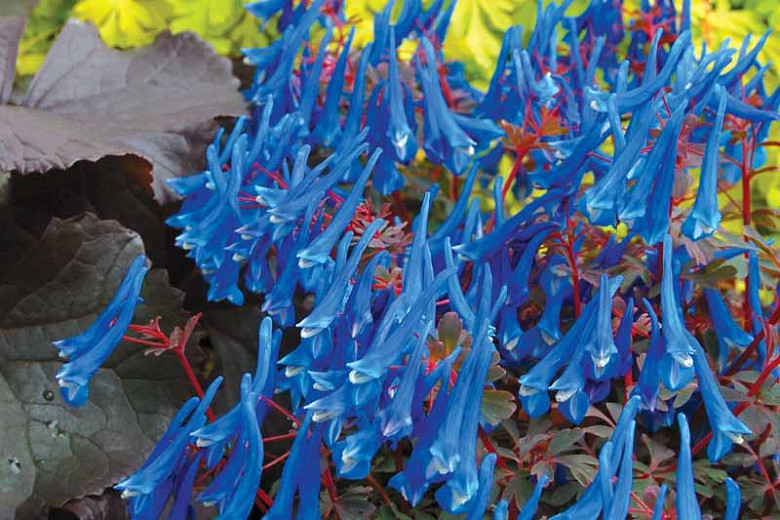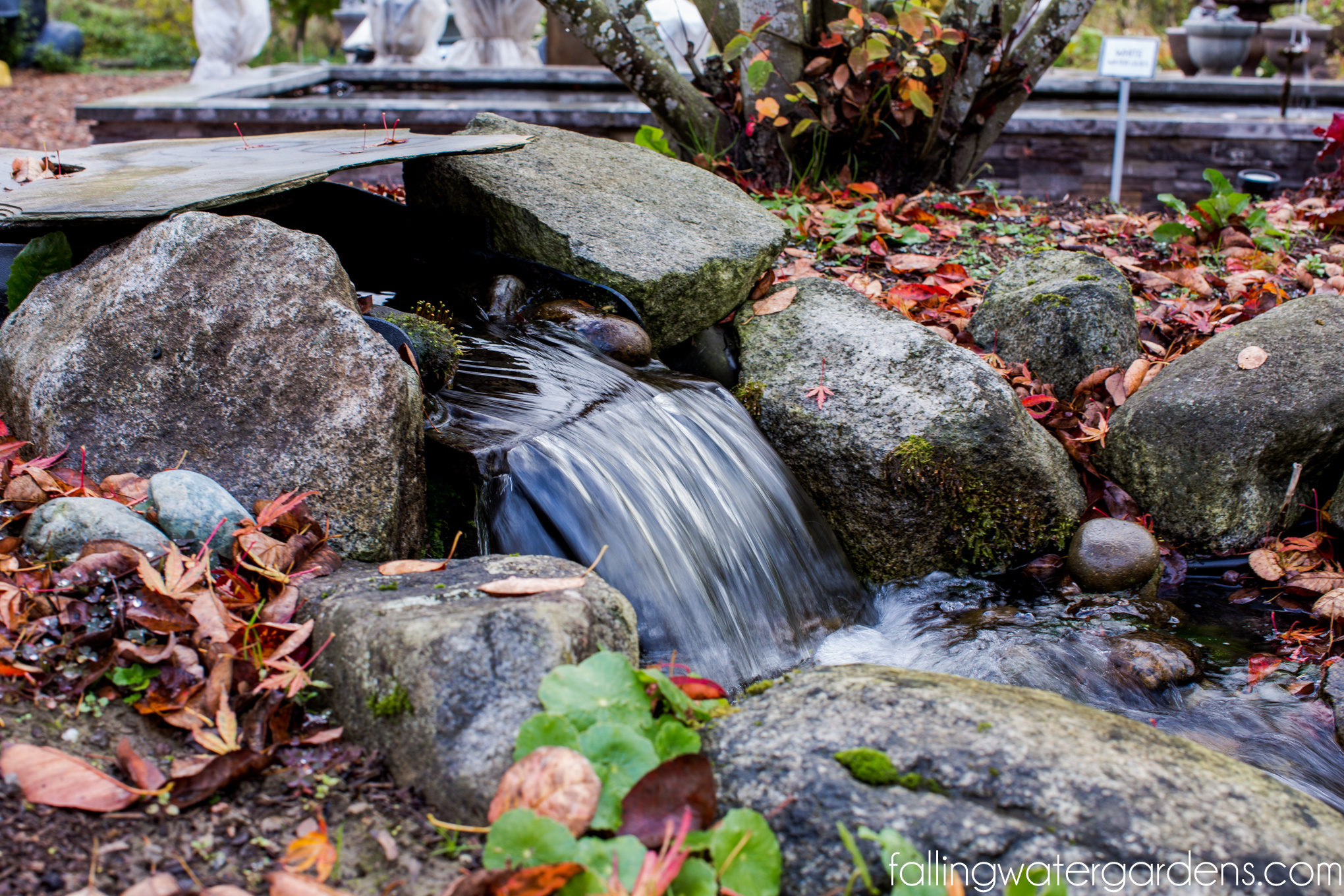How-To
For this “How-To” we’re revisiting common myths and misconceptions about Koi, Ponds & Plants.
 Do fish only grow as large as their environment?
Do fish only grow as large as their environment?
We get this question a lot at the nursery. The Goldfish we sell can eventually have bodies as long as 7-9” and tails another 6”-8” long. The Koi we sell can easily reach lengths over 2’. Contrary to popular belief the fish is genetically programmed to the size we just mentioned. Putting a fish who is genetically programmed to grow big in a small pond will not stop the fish from growing. What usually happens is that as the fish grows large in a small pond and the water quality deteriorates until the fish expires and that’s why he quits growing. You can keep large fish in a small pond if your water quality is excellent but it’s always better to give a big fish a large pond volume because they are less likely to expire or have issues.

You can’t plant a garden in July or August because of the heat.
The reality is this: You can’t dig up and transplant a tree, shrub, or perennial from your garden in the heat of summer. Think about it this way; to dig up and move something that’s been growing in your garden for a few years you have to cut up a huge portion of its existing root structure. When you cut back a plant’s roots and then try to move it in the heat the plant responds by dropping most of its leaves or top-growth and it goes into shock. If you need to transplant an existing plant it is best to do it when it is dormant in the fall/winter, or just as it is emerging in the spring.
There is never a bad time to take a new plant home from the nursery, take it out of the pot, and put it into your garden. The plant has been getting by with the small amount of roots it has in the pot at the nursery and it is always happy to go home to your garden and get to stretch out its roots and start growing bigger. As long as you’re able to give it a bit of water during the six week dry spell we usually have in July and August the plant will be really happy to be in the ground and will not go into shock.
Netting the pond
A common mistake that most make when netting their pond is just placing the netting over the pond and rocks. While this may be a good deterrent against other animals it will not stop Heron from spearing the fish. It only stops them from being able to get that speared fish out of the pond. Instead what you want to do is install the net about 16″-18″ above the waterline that way the heron will not be able to reach the fish. Check out our video to see how we do it.
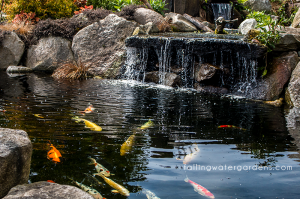 Do you have a small underwater bio-filter, a barrel filter, or an up-flow filter? Do you periodically clean them out because they get clogged up with debris? Are you using your garden hose to clean them?
Do you have a small underwater bio-filter, a barrel filter, or an up-flow filter? Do you periodically clean them out because they get clogged up with debris? Are you using your garden hose to clean them?
Small under-water bio-filters, barrel filters, and up-flow filters need to be periodically cleaned because dead algae, decomposing plants and fish waste will clog the media and suffocate the bacteria you are growing in your filters. The bacteria is beneficial and keeps the ammonia down in the pond. The bacteria grows in a microscopically thin film called biofilm. Don’t use your garden hose to “blast” the filter media clean during the season because you are actually blasting the bacteria off the media and out of the pond. If you there is chlorine in the water coming out of your hose the chlorine instantly kills your bacteria. It takes about three weeks for the filter to recover from a high pressure spray from a chlorinated hose so when you backwash or clean your bio-filter you should always use pond water and just lightly swish the media to dislodge any debris.
Please note that we’ve updated our newsletter format. You may navigate through this newsletter by clicking on the page numbers below.

